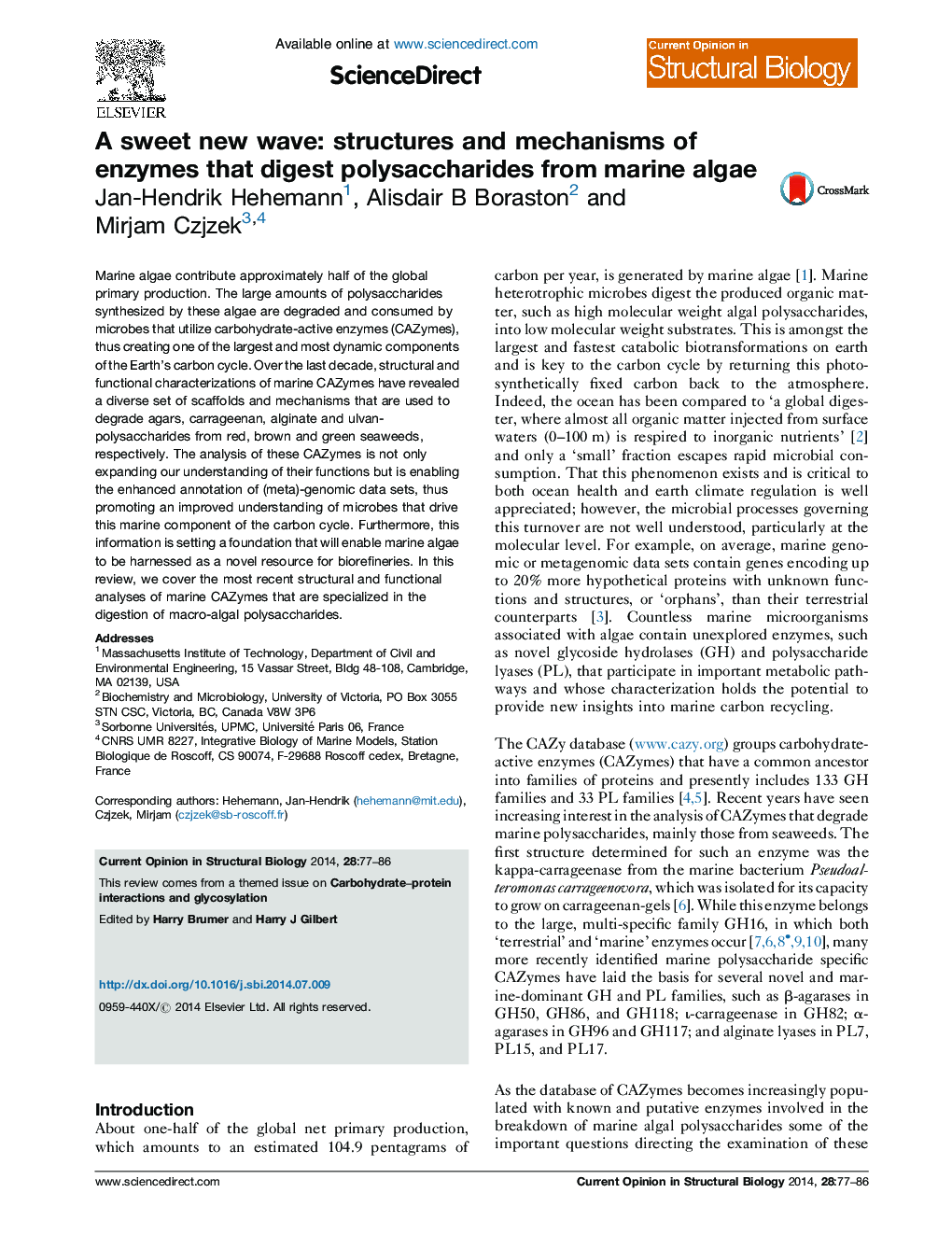| Article ID | Journal | Published Year | Pages | File Type |
|---|---|---|---|---|
| 8320065 | Current Opinion in Structural Biology | 2014 | 10 Pages |
Abstract
Marine algae contribute approximately half of the global primary production. The large amounts of polysaccharides synthesized by these algae are degraded and consumed by microbes that utilize carbohydrate-active enzymes (CAZymes), thus creating one of the largest and most dynamic components of the Earth's carbon cycle. Over the last decade, structural and functional characterizations of marine CAZymes have revealed a diverse set of scaffolds and mechanisms that are used to degrade agars, carrageenan, alginate and ulvan-polysaccharides from red, brown and green seaweeds, respectively. The analysis of these CAZymes is not only expanding our understanding of their functions but is enabling the enhanced annotation of (meta)-genomic data sets, thus promoting an improved understanding of microbes that drive this marine component of the carbon cycle. Furthermore, this information is setting a foundation that will enable marine algae to be harnessed as a novel resource for biorefineries. In this review, we cover the most recent structural and functional analyses of marine CAZymes that are specialized in the digestion of macro-algal polysaccharides.
Related Topics
Life Sciences
Biochemistry, Genetics and Molecular Biology
Biochemistry
Authors
Jan-Hendrik Hehemann, Alisdair B Boraston, Mirjam Czjzek,
